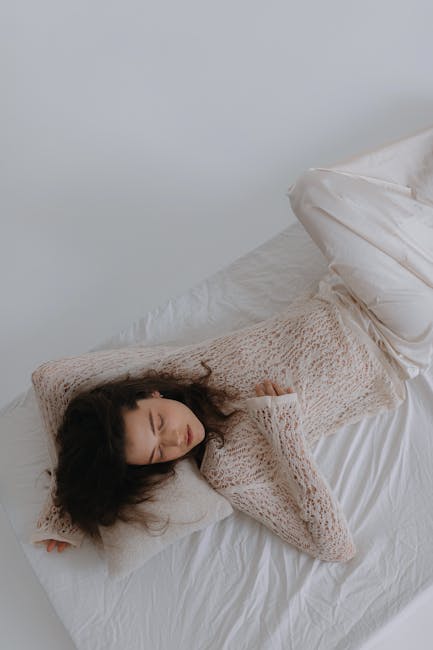Does Lysol Kill Bed Bugs? A Comprehensive Guide
Bed bugs have become a significant concern for many households. These tiny pests can cause sleepless nights and itchy bites, leading homeowners to seek effective solutions. One common question that arises is: Does Lysol kill bed bugs? In this comprehensive guide, we will explore the effectiveness of Lysol in eradicating bed bugs, other treatment options, and actionable tips for keeping your home bed bug-free.
Understanding Bed Bugs
Before diving into the specifics of using Lysol, it’s crucial to understand what bed bugs are and why they are so challenging to eliminate. Bed bugs are small, flat insects that feed on the blood of humans and animals. They are nocturnal and often hide in mattresses, bed frames, and other furniture during the day.
Bed Bug Statistics
According to a 2020 report by the National Pest Management Association (NPMA), 97% of pest professionals treated for bed bugs in the past year, making them one of the most common household pests. Bed bugs are tough to eradicate because they reproduce quickly, with a single female laying up to 500 eggs in her lifetime.
The Role of Lysol in Bed Bug Treatment
Many people turn to household disinfectants like Lysol when they discover a bed bug infestation. Lysol is a popular brand known for its ability to kill germs and bacteria, but can it effectively kill bed bugs?
How Lysol Works
Lysol is a disinfectant spray that contains various chemical compounds designed to kill bacteria and viruses on surfaces. It works by disrupting the cell walls of microorganisms, effectively killing them. However, bed bugs are not bacteria or viruses; they are insects with different biological structures.
Effectiveness of Lysol on Bed Bugs
While Lysol may kill bed bugs on contact, it is not a comprehensive solution for eliminating an infestation. Lysol can help reduce the number of bed bugs temporarily, but it is not designed to penetrate the areas where bed bugs hide, such as deep within mattresses or cracks in furniture.
Alternative Bed Bug Treatment Options
Given that Lysol is not a foolproof solution for bed bugs, it’s essential to explore other treatment options. Here are some effective methods to consider:
Professional Pest Control Services
Hiring a professional pest control service is one of the most effective ways to eliminate bed bugs. Pest control experts have access to specialized equipment and insecticides that can penetrate deep into hiding spots. They can also provide a comprehensive treatment plan tailored to your specific situation.
Heat Treatment
Bed bugs are highly sensitive to heat. Exposing infested areas to temperatures above 120°F (49°C) can kill bed bugs and their eggs. Professional heat treatment involves heating the entire room or home to a temperature that is lethal to bed bugs, ensuring that all hiding spots are treated.
Insecticide Sprays
There are various insecticide sprays available that are specifically formulated to kill bed bugs. These sprays can be applied to infested areas, including mattresses, bed frames, and furniture. It’s important to follow the instructions carefully and ensure that all potential hiding spots are treated.
Encasement and Vacuuming
Encasing mattresses and box springs in bed bug-proof covers can help contain and eliminate bed bugs. Additionally, vacuuming infested areas regularly can remove bed bugs and their eggs. Be sure to dispose of the vacuum bag or contents in a sealed bag to prevent re-infestation.
Preventing Bed Bug Infestations
Preventing bed bugs from entering your home is the best way to avoid dealing with an infestation. Here are some actionable tips to keep your home bed bug-free:
Inspect Second-Hand Furniture
Before bringing second-hand furniture into your home, carefully inspect it for signs of bed bugs. Look for small, reddish-brown bugs, tiny white eggs, or dark spots (bed bug feces). Consider treating the furniture with an insecticide or heat treatment before use.
Be Cautious When Traveling
Bed bugs are often spread through travel. When staying in hotels, inspect the mattress, headboard, and furniture for signs of bed bugs. Keep your luggage off the floor and bed, and consider using a luggage encasement. Upon returning home, wash and dry your clothes on high heat to kill any potential hitchhikers.
Reduce Clutter
Clutter provides hiding spots for bed bugs, making it harder to detect and eliminate them. Keep your home tidy and reduce clutter, especially in bedrooms and living areas. Regularly clean and vacuum to remove potential hiding spots.
Seal Cracks and Crevices
Seal any cracks and crevices in walls, floors, and furniture to prevent bed bugs from hiding and laying eggs. Use caulk or sealant to fill gaps in baseboards, electrical outlets, and other potential entry points.
Conclusion
While Lysol can kill bed bugs on contact, it is not a comprehensive solution for eliminating an infestation. Bed bugs require a multi-faceted approach, including professional pest control services, heat treatment, insecticide sprays, and preventive measures. By understanding the limitations of Lysol and exploring alternative treatment options, you can effectively combat bed bugs and keep your home pest-free.
For more information on bed bug treatment and prevention, be sure to consult with a pest control professional or visit reputable online resources. Remember, early detection and prompt action are key to successfully eliminating bed bugs from your home.

